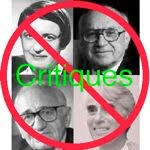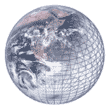BBC News – Silk Road: How FBI closed in on suspect Ross Ulbricht
“US authorities believe that 29-year-old Ross William Ulbricht, arrested on Wednesday, is Dread Pirate Roberts DPR – the administrator of the notorious Silk Road online marketplace. It was an underground website where people from all over the world were able to buy drugs.
In the months leading up to Mr Ulbricht’s arrest, investigators undertook a painstaking process of piecing together the suspect’s digital footprint, going back years into his history of communicating with others online.
The detail of how the FBI has built its case was outlined in a court complaint document published on Wednesday.
As would be expected, Dread Pirate Roberts was using a VPN – virtual private network – to generate a “false” IP address, designed to cover his tracks.
However, the provider of the VPN was subpoenaed by the FBI.
While efforts had been made by DPR to delete data, the VPN server’s records showed a user logged in from an internet cafe just 500 yards from an address on Hickory Street, known to be the home of a close friend of Mr Ulbricht’s, and a location that had also been used to log in to the Gmail account.”
more… via BBC News – Silk Road: How FBI closed in on suspect Ross Ulbricht.
Related articles
- Does Encryption Still Work? (securityinabox.org)
- Secure Your Mobile –Apps And Tools You Can Trust (guardianproject.info)
- Hunt for Silk Road users and Bitcoin fortunes continues (patriotnetdaily.com)
- Uh Oh, Silk Road Users Are Starting to Get Arrested_ (oddly-even.com)
- Silk Road: suspicions grow that server was hacked ahead of arrests (theguardian.com)






 Church of Reality
Church of Reality Critiques Of Libertarianism
Critiques Of Libertarianism P2P Foundation
P2P Foundation Stanford Encyclopedia of Philosophy
Stanford Encyclopedia of Philosophy The Stone
The Stone